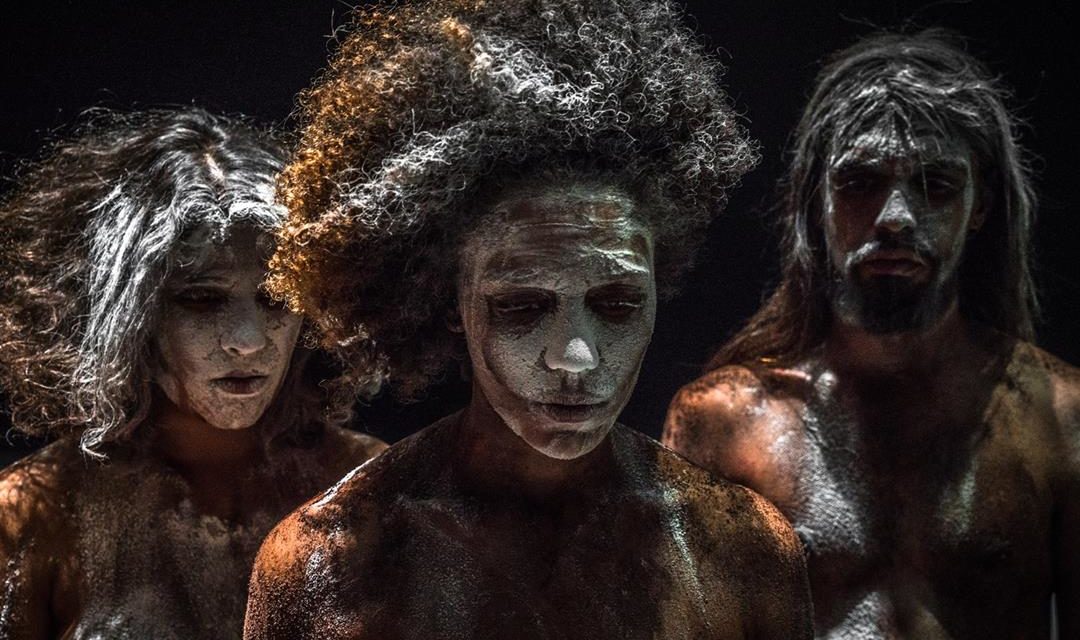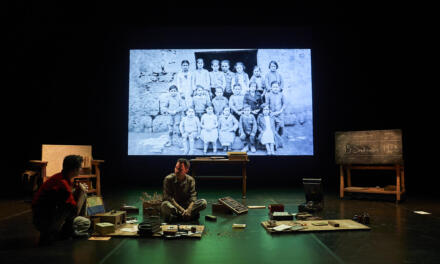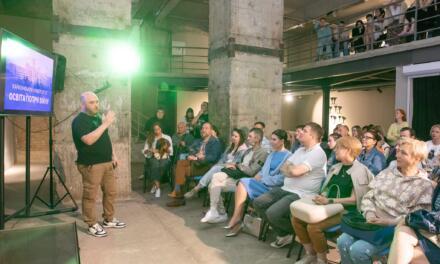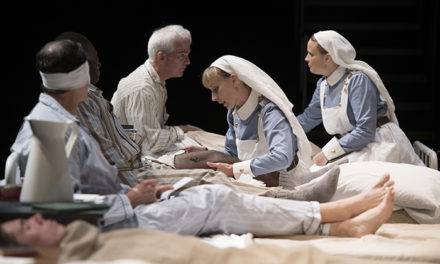One can be surprised to see the brief life of MITsp (Mostra Internacional de Teatro de São Paulo) and its repercussion on São Paulo’s local scene. Since 2014, organizers Antônio Araújo and Guilherme Marques have been putting together a festival that tries to bring the most significant international and national productions to Brazilian audiences. However, that is not the only goal of the event: each year, Araújo and Marques assemble a great team of specialists, theorists, and critics to dialogue with the plays and to establish a common ground of thought devoted to theatre and its relations to contemporary issues. Such an effort has paid off: MITsp is one of the most important Brazilian festivals, because of its relevance on curatorship not only regarding artistic works but focusing on the critical thinking those works can generate.
The project of 2017, of course, suffered from the economic crisis that has been affecting festivals all over the country. In general, as we all know, money is always a problem, but recent global economic crisis and cut-offs of every sort (especially on the fields of education, health and culture/arts) by local governments and sponsors created the risk of postponing this year’s MITsp to 2018. Gladly, organizers found a way to manage the crisis, holding back the festival’s dimensions, from the number of invited artists to the duration of the event itself. “Nonetheless, putting together this festival is still an act of resistance”, says Antônio Araújo.
The fourth edition of MITsp opens on March 14th at Theatro Municipal de São Paulo and keeps its activities till the 21st. Seven international productions will visit São Paulo and three will represent the Brazilian scene, in a total of 31 presentations happening in parallel with a vast number of educational and critical activities. Even in smaller proportions, MITsp still values the mediation between the public and the work of art. According to the press release, around 65% of the program is dedicated to debates, lectures from artists and theorists, critical production, and artistic workshops, following a tendency that has become part of the festival’s identity.

A Missão em Fragmentos: 12 cenas de descolonização em legítima defesa. Photo credit Cristina Maranhão.
This edition’s curatorship tried to address contemporary issues as well as developments of certain themes from early editions. The matter of racism and African-American identity is finally a central topic of discussion in Brazilian society. It was in the middle of such controversy that Brett Bayley’s Exhibit B had its debut canceled in MITsp 2016. At that time, the black actors who were to participate in Bayley’s work faced the protests against the presentation of Exhibit B by creating a performance called Em legítima defesa (In legitimate defense, in a free translation), that burst in the closing of some of the MITsp 2016 works. Now, the group returns as a theatre company to the festival and presents A missão em fragmentos: 12 cenas de descolonização em legítima defesa (The mission in fragments: 12 scenes of decolonization in legitimate defense). Directed by Eugênio Lima, the work seeks inspiration in Heiner Müller’s The mission to discuss racism and prejudice today.
Sensitive to developments regarding race and politics, MITsp 2017 invited the singer/actress/performer Ntando Cele, from South Africa, to present her concert-performance entitled Black-off. Mixing stand-up comedy, performance, music, and image, Ntando Cele relocates the problem of racism into the female perspective. In Brazilian ground, the discussion continues with the premiere of Branco: o cheiro do lírio e do formol (White: the smell of lilies and formaldehyde). Directors Alexandre Dal Farra and Janaína Leite investigate whiteness as a social construct that plays an active role in the racist structure of society.
The selection of such works points out a desire from the curators to be politically responsive and to contribute to the public debate. Nonetheless, doing so doesn’t mean disregarding the most daring experiences in the aesthetic field. On the contrary, to be more conscious politically means to be open to alterities and to the complexities of language and representation. That said, we can see another set of works that deals with the potencies and possibilities of mixing different codes of representation. From Belgium, the company les ballets C de la B comes with En avant, march! and, from Germany, the Münchner Kammerspiele theatre brings Why does herr R. run amok?. In the first, the musical element will be the main aspect of the festival’s grand opening show. In the latter, director Susanne Kennedy dialogues with the filmmaker Rainer Fassbinder. Last but not least, alongside those hybrid works from abroad, we must not forget internationally acclaimed Lia Rodrigues, that represents the native soil (Brazilian, indigenous?) with Para que o céu não caia (To stop the sky from falling), reconnecting theatre with ritual dance.
MITsp closes its program with a third set of invited works in which formal research and political thinking almost become strictly one. Rabih Mroué (Lebanon) and Guillermo Calderón (Chile) will be coming to São Paulo to present different experiences of documentary theatre. Mroué brings a repertoire of three works in which images appear as ways of narrating realities: So little time, Pixelated Revolution and Riding on a cloud. In those works, representation becomes a category to learn how images and narratives form our notions of self, history, memory and reality, in the violent context of Middle East culture. In another level of documentary theatre, with Mateluna, Calderón revisits the life of Jorge Mateluna, a collaborator that was unfairly arrested by the government after fighting against Chilean dictatorship.
All of the works mentioned above will rely on a complex network of critical, theoretical and educational activities. Each one of those actions will reverberate a different aspect, a different social voice, and a distinct aesthetic perspective over the plays. They will be commented by academic professors, by theatre critics, by the audiences in public debates, expanding the notion of what a theatre festival is supposed to be. Seminars like “Dimensões públicas da crise e formas de resistência” (Public dimensions of the crisis and forms of resistance) and “Discursos sobre o não dito: racismo e a descolonização do pensamento” (Discourses about what is not being said: racism and decolonization of thought) are initiatives that create not only a festival (an occasion to celebrate the arts), but one with a strong bond to what is going on once we leave the theatres.
This post was written by the author in their personal capacity.The opinions expressed in this article are the author’s own and do not reflect the view of The Theatre Times, their staff or collaborators.
This post was written by Renan Ji.
The views expressed here belong to the author and do not necessarily reflect our views and opinions.




















